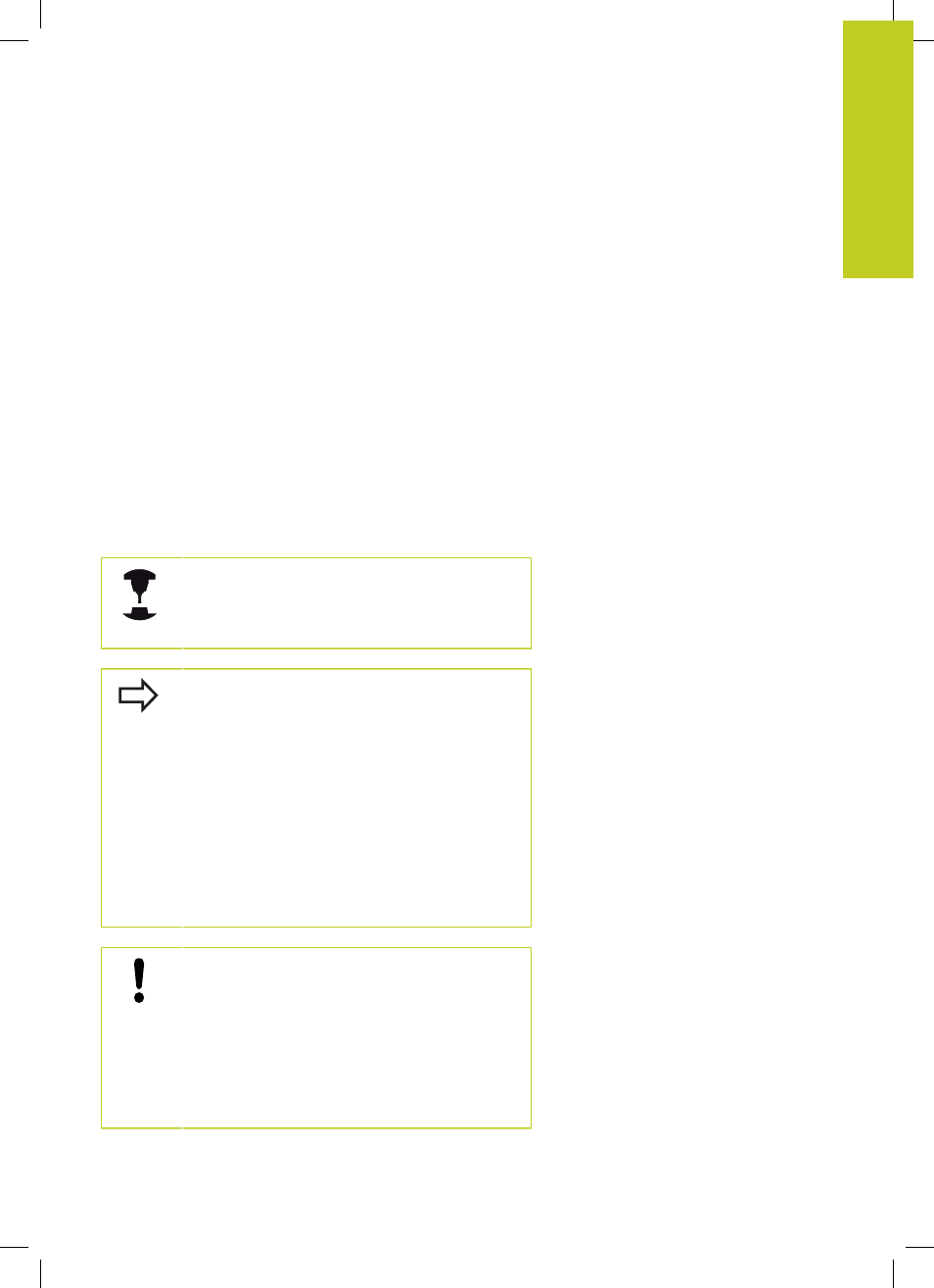Cycle run, Please note while programming – HEIDENHAIN TNC 320 (34055x-06) Cycle programming User Manual
Page 91

RIGID TAPPING without a floating tap holder NEW (Cycle 207, DIN/
ISO: G207)
4.3
4
TNC 320 | User's Manual Cycle Programming | 5/2013
91
4.3
RIGID TAPPING without a floating tap
holder NEW (Cycle 207, DIN/ISO: G207)
Cycle run
The TNC cuts the thread without a floating tap holder in one or
more passes.
1 The TNC positions the tool in the tool axis at rapid traverse
FMAX to the entered set-up clearance above the workpiece
surface.
2 The tool drills to the total hole depth in one movement.
3 Once the tool has reached the total hole depth, the direction of
spindle rotation is reversed and the tool is retracted to the set-
up clearance at the end of the dwell time. If programmed, the
tool moves to the 2nd set-up clearance at
FMAX.
4 The TNC stops the spindle turning at set-up clearance.
Please note while programming:
Machine and TNC must be specially prepared by the
machine tool builder for use of this cycle.
This cycle is effective only for machines with servo-
controlled spindle.
Program a positioning block for the starting point
(hole center) in the working plane with radius
compensation
R0.
The algebraic sign for the cycle parameter DEPTH
determines the working direction. If you program
DEPTH=0, the cycle will not be executed.
The TNC calculates the feed rate from the spindle
speed. If the feed-rate override is used during
tapping, the TNC automatically adjusts the feed rate.
The feed-rate override knob is disabled.
At the end of the cycle the spindle comes to a stop.
Before the next operation, restart the spindle with
M3 (or M4).
Danger of collision!
Use the machine parameter displayDepthErr to
define whether, if a positive depth is entered, the
TNC should output an error message (on) or not (off).
Keep in mind that the TNC reverses the calculation
for pre-positioning when a
positive depth is
entered
. This means that the tool moves at rapid
traverse in the tool axis to set-up clearance
below
the workpiece surface!
